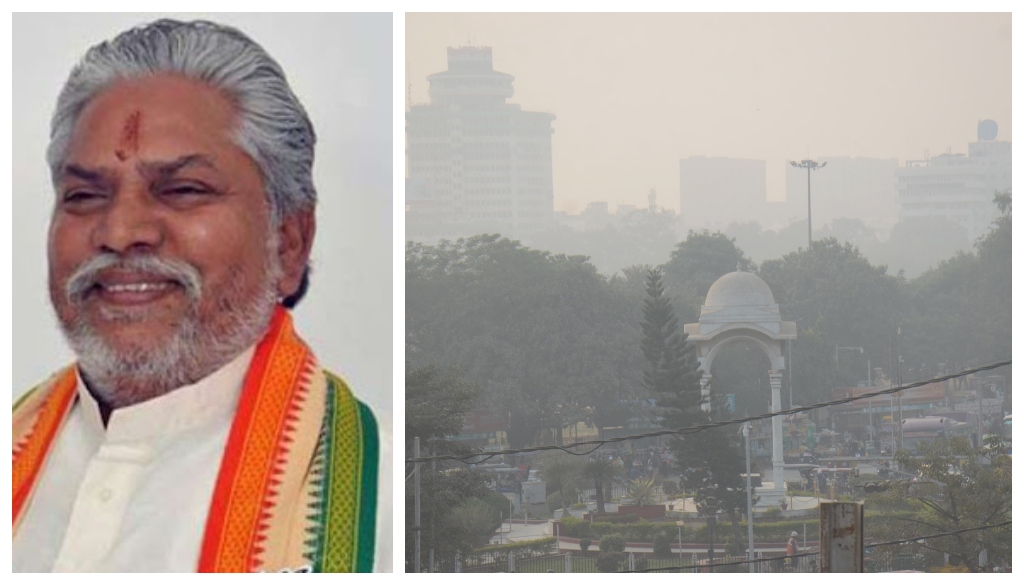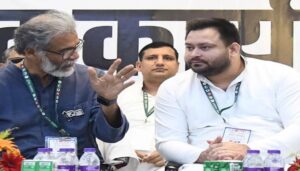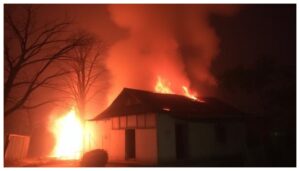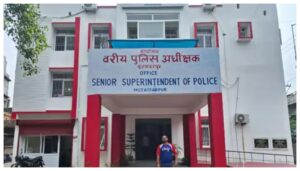Bihar Environment Minister Sounds Alarm on Pollution Crisis, Calls for United Action

Patna: Bihar’s Environment, Forest, and Climate Change Minister, Dr Prem Kumar, has raised alarm over the escalating pollution crisis across India, noting that 10 major cities, including Delhi, Mumbai, and Bengaluru, are now among the most polluted in the world. Addressing the issue, he stated that pollution has become a leading cause of death, contributing to 7.2% of daily fatalities in these cities due to water, air, noise, soil, and food pollution.
Dr Kumar attributed the worsening pollution to unchecked population growth, diminishing forests, shrinking land, and the disappearance of natural water bodies such as rivers, lakes, and ponds. “The growing population leads to increased waste and pollution, which is severely damaging our environment,” he said.
Highlighting key contributors, he pointed to motor vehicle emissions, industrial discharges, improper waste management, and the use of chemical fertilizers and pesticides as significant culprits. The rapid urbanization of villages, unplanned city expansion, and a lack of green spaces have compounded the problem, leading to higher levels of air, water, and soil pollution.
Dr Kumar referenced a study published in The Lancet Planetary Health Journal, which revealed that millions of people die annually from pollution-related causes. He emphasized the urgent need for sustainable agricultural practices, organic farming, afforestation, solid waste treatment, and recycling to curb soil and water pollution.
Air pollution, he noted, is largely driven by human activities such as transportation, burning of agricultural residues, industrial processes, and the use of fossil fuels. “Transportation alone contributes to 75% of oxygen emissions, while over a billion people rely on fossil fuels domestically, releasing harmful substances like carbon dioxide and lead into the atmosphere,” he said.
Patna, Bihar’s capital, has not been spared from the pollution crisis. Dr Kumar highlighted that the city has previously been classified in the “red zone” for air quality, with fine dust particles reaching six times the permissible limit. Though recent rainfall has temporarily improved the situation, he warned of the severe health risks posed by high levels of particulate matter, particularly for individuals with asthma and respiratory conditions.
To combat the crisis, Dr Kumar called for collective action, emphasizing the role of public cooperation and awareness. He urged citizens to adopt measures such as using public transport, minimizing air conditioner usage, managing waste responsibly, and integrating green solutions like rooftop gardens, vertical gardens, and kitchen gardens into urban living spaces.
“Municipal corporations must ensure cleanliness, while citizens need to follow pollution guidelines and contribute to building sustainable green spaces. Only through collective efforts can we win the war against pollution,” he said.
Dr Kumar concluded with a stark warning: “If we fail to act, we will write our own destruction. The fight against pollution is not just an environmental issue but a battle for our survival.”





